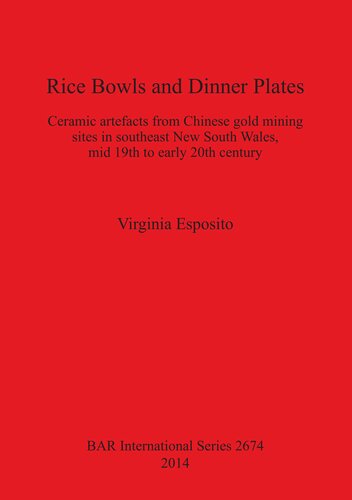

Most ebook files are in PDF format, so you can easily read them using various software such as Foxit Reader or directly on the Google Chrome browser.
Some ebook files are released by publishers in other formats such as .awz, .mobi, .epub, .fb2, etc. You may need to install specific software to read these formats on mobile/PC, such as Calibre.
Please read the tutorial at this link: https://ebookbell.com/faq
We offer FREE conversion to the popular formats you request; however, this may take some time. Therefore, right after payment, please email us, and we will try to provide the service as quickly as possible.
For some exceptional file formats or broken links (if any), please refrain from opening any disputes. Instead, email us first, and we will try to assist within a maximum of 6 hours.
EbookBell Team

4.7
76 reviewsThis volume details the results of the first intra-site examination of Chinese gold miners' camps in Australia and the compositional analyses of Chinese-made ceramic vessels found there. Ceramic collections from five southeastern New South Wales goldfields, dating from the mid-nineteenth to early-twentieth century, were examined. Traditional and non-traditional methods of ceramic analysis were used to answer major questions and thus expand the archaeology of the Chinese in Australia. The analyses enabled conclusions to be drawn about the active role of vessels in everyday life, not only within the domestic sphere but also in communal aspects of food and feasting. On a broader scale, the research considered the nature of Chinese supply networks and revealed how western-style ceramics became appropriate substitutes for Chinese-made vessels as supply sources changed. This study was also the first comparison of contemporary assemblages from Chinese and non-Chinese sites in the same region, evaluating the Chinese access to western ceramic markets, particularly British-made wares. The analysis of ceramic artefacts has given an insight into the Chinese miners' lives, from the beginning of the gold rush when many worked under the control of a headman to the later nineteenth century when families were at the camps. Overall, this research has highlighted short and long-term occupation sites and established that these camps were not homogenous or static settlements, they changed over time.